In the foggy mirror he looks upon his own blank face, even and smoothed out in the steam, except for his hair, which is shockingly black, like crows’ feathers.
And the scar above his left eye.
On the bed the dog whimpers and licks a bloody, mutilated paw. Its nails are long, like it had been unnaturally caged and recently set free. ( It’s a strange moment in the film, tone wise, with all the blood, almost exploitation-like. ) Haydn sits down beside the animal and with his knife trims them back, holding each paw, one-by-one, firmly. Perhaps the dog understands because it offers no resistance. It lies on its side blinking at the ceiling. It laps up the water Haydn brings it in the frail plastic-wrapped cup from the bathroom. It sleeps beside him in the bed, twitching and fretting all night.
He lies back on the bed and looks up at the freshly painted ceiling, and falls asleep.
That night ( this part is projected in soft-focus color ) on the motel room ceiling above Haydn’s sleeping body he dreams of Something coiled black in the trunk of his car, and of the girl’s warning after she told him the story of the thing in the church, and of opening the trunk with the turn of a key, and of the Something spiraling out of the trunk like a reverse tornado.
The next morning, the dog lets Haydn carry him out to his car and put him in the backseat. He drives out to the main street with its Dairy Queen and Pizza Hut and Tire Shop and every building that has been distractedly built, past Fetter’s Iron Works and Meijer and Dough Boys and the pharmacies and banks and oil changers, past the brown brick bank with the time and the temperature that can’t be right unless you live on Mars and the small tilted farmhouse wedged between the insurance office and the church, past the lurking hospital, square like a bunker with its startling antennas on the roof and its thin crease-like windows. He drives out to the edge of development where the new marriages and hopeless marriages flee, some age-old memory trace of butchery buried in the signs for the brand new Indian-named subdivisions, Shawnee Trace and Tecumseh Point and Arrowhead Park.
Then the houses and businesses fall away and the road south opens up with no distractions. Haydn drives further and further still until it’s dark, a blanket of numbness ( the screen seems oily at this point ) covering his mind.
Everything at the truck stop off I-75 is covered with a delicate sheen of grease.
He is somewhere near Ashland, Kentucky.
The food comes in fried heaps, delivered by a “somnambulist waitress with wild red hair and a torn dress.”
Perhaps she isn’t the waitress, after all, Haydn thinks afterward.
The coffee sets his ears ringing, and he has to strain to hear his own thoughts.
Two tables over ( this is shown in a strange Polaroid-type film; the images look smeared like wet paint ) a young boy about 11 or 12 with a pierced eyebrow pokes at his food sullenly, a secret signal to his parents that he will soon be leaving their world, that even this — this innocent stopover on the way to somewhere else — is the end of something. The boy is bored with his own boredom. His clothes are brown and baggy; he’s loaded with the “symbology of discontent.” With his bare hands and thumbs Haydn could mold the boy’s high-cheek-boned, feminine face into the face of his own child’s, his daughter, lost now but visible in traces in the body of every child.
With shaking hands Haydn fishes out his money and spills it on the cashier’s counter.
One coin spins and spins beyond reason until he stops it with his hand. Out of his wallet slips a small piece of paper with a phone number written on it. He turns it over in his hands, and knows without knowing that the girl must have slipped it in there. Perhaps her cell phone number. Why? He imagines her doing it ( we actually see her doing it so it’s hard to know whether Haydn’s imagining it or not ) in the dark, as he slept. He folds it in two and returns it to his wallet. In the car the dog is awake, watching Haydn approach through the foggy window. Haydn starts the car and drives off, pulling onto the highway with all the banal order that such an act requires, gripping the steering wheel in his hands with strangulation strength.
As the gray strip of highway gathers retreating speed behind him, he looks more than once in his rearview mirror, certain that someone is following him. Not the police. There is something bigger in store for him than that. Whatever it is, it’s getting closer. Something to end it all. Everything that was happening was tending toward this final moment.
( Parts of what happens next are voiced over, others depicted through exposition .) That night, in southern Kentucky, Haydn pulls off the highway and takes a sorry road to the James Motel just outside of Kensington. The dog sleeps beside him in the bed.
He feeds the dog and checks its feet, which are healing quickly. He flicks on the TV but all that comes up is the blue on-screen menu, which he can’t get to work. He goes to the window and closes the drapes, and then turns on the lamps on the desk and the bedside table.
When he’s in the bathroom, someone pounds on the door. The dog jumps down from the bed and stands there barking. ( We’re seeing this now from an impossible overhead point of view, as if the camera’s affixed to the ceiling .) Haydn comes partially out of the bathroom and stands in the doorway, waiting. The dog quiets down, and then there is pounding again, louder, almost alarming, and the dog goes back to barking, its body shaking. It throws its head from side to side as it barks. Haydn doesn’t move. After the pounding stops, he goes to the door and looks out the peephole, but it’s fogged and he can see nothing.
Haydn sits down on the bed and the dog jumps up next to him. He rubs the dog’s head, and wonders if it might have been the cop at the door. Or maybe the cleaning woman, but she would have let herself in. He calls the front desk and puts another night on his card. He gets Chinese that day and night, and then the next, delivered by a woman in a yellow waitress outfit with a tattoo of a red triangle on both of her forearms and it slowly occurs to him that he will not be leaving any time soon. He has enough money to stay here for a long, long time. ( On third viewing I saw clearly that Haydn’s actions were creating a network of action that I myself would follow .) Before he knows it, five or six days have gone by, and he hasn’t even opened the curtains or looked outside. He doesn’t answer the door when the knocking comes again, nor does he answer the phone when it rings. If someone wants to get him, they would have to fucking come and get him, because for all he cares the world outside has disappeared, and as long as he has food and money to pay for this room he’s content not to leave, ever. He ceases to look at himself in the mirror, but sometimes catches sideways glances that reveal his growing beard, his scraggly hair, his wrinkled clothes.
At night he sometimes wonders about the boy in the diner, which makes him think about his daughter, and her long graceful body in the coffin, and the way she covered her mouth when she laughed, and about how the dog is healing, and about the girl he had maybe left in the fire.
He remembers her number in his wallet.
He regrets not touching her tattoo.
He wonders if she’s okay.
Sitting on the edge of his bed, he dials the number.
It rings and rings.
He hangs up and does it again.
This time, she answers.
HER: “Hello?”
HIM: “I wanted to see if you were okay.”
HER: ( Long pause. The sound of the humming phone line ) “Me? You’re the one who’s got to be careful. Why did…”
Читать дальше
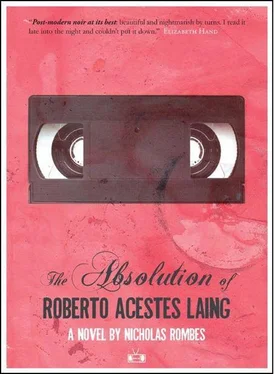
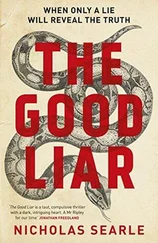
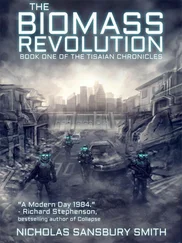



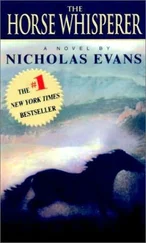
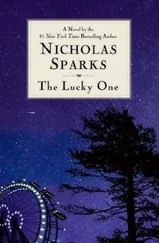




![Nicholas Timmins - The Five Giants [New Edition] - A Biography of the Welfare State](/books/701739/nicholas-timmins-the-five-giants-new-edition-a-thumb.webp)